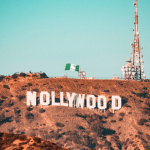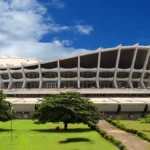
Nigeria. The Giant of Africa. A land of unparalleled vibrancy, rich history, and incredible potential. Yet, for many outside its borders, and even some within, Nigeria remains shrouded in misconceptions. Decades of sensationalized headlines, limited exposure to its true essence, and a tendency to generalize a nation of over 200 million people have fueled narratives that are, quite simply, untrue.
As a travel and tour business passionate about showcasing the authentic beauty of Nigeria, we constantly encounter these myths. It’s time to set the record straight. Pack your bags (mentally, for now!), open your mind, and let’s debunk seven pervasive myths about Nigeria that are far from the truth.
Myth #1: Nigeria is Always Dangerous and Unsafe
(Image: Busy, well-lit street in Lagos or Abuja at night, people enjoying themselves, perhaps a visible security presence but not overbearing.)
This is, by far, the most persistent and damaging myth. Media reports often focus exclusively on isolated incidents of crime or conflict, painting a picture of a nation perpetually engulfed in chaos. While like any large country, Nigeria faces its share of security challenges in specific regions, generalizing this across the entire nation is inaccurate and unfair.
The Reality:
- Vast and Diverse: Nigeria is geographically diverse, with bustling megacities, serene coastal towns, ancient historical sites, and tranquil natural reserves. The security situation varies significantly from one region to another. Major cities like Lagos, Abuja, Port Harcourt, and Calabar are generally safe for residents and tourists, especially in well-known areas.
- Targeted Incidents: Many security concerns are localized and often do not affect tourists. The government and local authorities are actively working to address these issues.
- Smart Travel: Just like visiting any major global city, exercising common sense is key: avoid walking alone at night in unfamiliar areas, use reputable transportation, and be aware of your surroundings. Most Nigerians are incredibly welcoming and eager to help visitors.
- Community Watch: Nigeria has strong community ties, and local residents often look out for each other and for visitors.
- Our Tours: We meticulously plan our itineraries to ensure safety, utilizing trusted local guides and secure accommodations in well-vetted areas. Your well-being is our utmost priority.
Myth #2: Nigeria is One Homogenous Culture (and Everyone Speaks pidgin)
(Image: A collage showing people in different traditional attires from various Nigerian tribes – Igbo, Yoruba, Hausa, Edo, Fulani, etc. – alongside people speaking in different contexts, not just pidgin.)
This myth often stems from a superficial understanding of Nigeria’s immense diversity. Many imagine a monolithic culture where everyone dresses the same, eats the same food, and speaks a single, simplified version of English.
The Reality:
- Ethnic Mosaic: Nigeria boasts over 250 ethnic groups, each with its own distinct language, customs, traditions, attire, music, and cuisine. The “big three” – Hausa-Fulani, Yoruba, and Igbo – represent large populations, but they are just the tip of the iceberg. There are Edo, Ijaw, Tiv, Efik, Urhobo, Kanuri, Nupe, Gbagyi, and countless others, each contributing to a vibrant cultural tapestry.
- Linguistic Richness: While English is the official language and Nigerian Pidgin English is widely understood and spoken as a lingua franca, hundreds of indigenous languages are spoken daily. Learning a few phrases in Yoruba, Igbo, or Hausa can immensely enrich your travel experience and endear you to locals.
- Diverse Cuisines: Nigerian food is famous for its bold flavors, but it’s far from monolithic. From the spicy Jollof Rice (whose origin is a friendly continent-wide debate!) and aromatic Egusi soup of the South to the rich Tuwo Shinkafa and Miyan Kuka of the North, every region offers a unique culinary adventure.
- Vibrant Festivals: Throughout the year, various ethnic groups celebrate vibrant festivals that showcase their unique heritage, from the Argungu Fishing Festival to the Calabar Carnival and the Ofala Festival.
Myth #3: Nigeria is a Vast, Undeveloped Wasteland
(Image: Modern architecture in Lagos (e.g., Eko Atlantic, Lekki-Ikoyi Link Bridge), a bustling tech hub office, well-maintained roads, solar panels.)
This myth often conjures images of unpaved roads, crumbling infrastructure, and a lack of modern amenities. While infrastructure development is an ongoing process, this perception completely ignores the significant progress and modernity present across the country.
The Reality:
- Economic Powerhouse: Nigeria is Africa’s largest economy and most populous nation. This economic might is visible in its rapidly developing urban centers.
- Modern Cities: Lagos, the economic hub, is a sprawling metropolis with impressive skylines, world-class hotels, shopping malls, and a burgeoning tech scene often dubbed “Silicon Lagoon.” Abuja, the capital, is a beautifully planned city with modern infrastructure.
- Technological Advancement: Nigeria has a rapidly growing tech industry, with startups and innovators driving digital transformation. Mobile phone penetration is high, and digital payments are increasingly common. Internet access is widespread, especially in urban areas.
- Improving Infrastructure: Significant investments are being made in roads, railways, and power infrastructure, improving connectivity and quality of life. The new Lagos-Ibadan railway is a prime example of modern transport links.
- Entrepreneurial Spirit: Nigerians are incredibly innovative and entrepreneurial, constantly finding creative solutions and building thriving businesses across all sectors.
Myth #4: All Nigerians Are Involved in Online Scams (“419”)**
(Image: People genuinely engaged in business, smiling entrepreneurs, a reputable local guide interacting with tourists.)
The infamous “419” scam has unfortunately tainted the perception of an entire nation, leading some to believe that every Nigerian encountered online (or even in person) is a potential fraudster. This harmful stereotype undermines the integrity and honesty of millions of hardworking individuals.
The Reality:
- A Tiny Minority: Like any country, Nigeria has its share of criminals, but those involved in online scams represent an infinitesimally small fraction of the population. The vast majority of Nigerians are honest, hardworking, and deeply religious people who value integrity.
- Global Problem: Online fraud is a global issue, not unique to Nigeria. Scammers operate from every corner of the world.
- Warm Hospitality: Nigerians are renowned for their incredible hospitality and generosity. You are far more likely to encounter genuine warmth and kindness than attempted deception.
- Vibrant Business Sector: The country has a thriving legitimate business sector, with professionals, entrepreneurs, and skilled workers contributing to its growth.
Myth #5: Nigeria is Nothing But Desert and Arid Land
(Image: Lush green landscapes – perhaps a rainforest, a waterfall, fertile farmlands, or the beautiful coastline.)
Perhaps a misunderstanding of West African geography, this myth suggests a monochromatic landscape of sand and dryness.
The Reality:
- Diverse Climates & Landscapes: Nigeria spans various climatic zones, from the Sahel savanna in the far North to tropical rainforests in the South and mangrove swamps along the coast.
- Lush Vegetation: The southern regions are characterized by dense forests, fertile agricultural lands, and significant rainfall. You’ll find breathtaking waterfalls like Farin Ruwa and Gurara, expansive river systems (Niger and Benue), and a long coastline with beautiful beaches.
- Rich Biodiversity: This diverse landscape supports incredible biodiversity, from unique flora to wildlife found in national parks like Yankari Game Reserve.
- Agricultural Heartlands: The central and northern parts feature vast savannas, perfect for agriculture, contributing significantly to the nation’s food production.
Myth #6: Nigeria is Just About Oil (and Everyone is Rich)
(Image: A bustling local market with diverse goods, a tech startup office, people working in agriculture, artisanal craftspeople.)
The perception that Nigeria’s economy revolves solely around oil, and by extension, that all Nigerians benefit from vast oil wealth, is a simplistic and misleading view.
The Reality:
- Diversifying Economy: While oil is a significant revenue generator, Nigeria’s economy is increasingly diversified. Sectors like telecommunications, entertainment (Nollywood!), agriculture, technology, manufacturing, and services are experiencing robust growth.
- Largest Economy in Africa: This diversification contributes to its status as Africa’s largest economy, driven by innovation and human capital.
- Economic Disparity: Like many large nations, Nigeria faces economic inequality. The vast majority of Nigerians are hardworking individuals navigating a complex economic landscape, not benefiting directly from oil revenues.
- Creative Industries: Nollywood, Nigeria’s film industry, is one of the largest in the world, creating millions of jobs and showcasing Nigerian talent and stories globally. Its music industry is also a global phenomenon.
Myth #7: Travel in Nigeria is Inconvenient and Lacks Infrastructure for Tourists
(Image: A comfortable hotel lobby, an organized tour bus, a well-marked cultural heritage site.)
This myth suggests that traveling through Nigeria is a constant struggle, with no proper facilities or guidance for visitors.
The Reality:
- Developing Tourism Sector: Nigeria’s tourism sector is growing, with increasing investment in infrastructure and services.
- Accommodation Options: You’ll find a range of accommodation, from luxurious international hotels in major cities to charming guesthouses and eco-lodges in more serene locations.
- Local Transportation: While public transport can be vibrant, reputable car hire services, ride-hailing apps (like Uber and Bolt), and domestic airlines offer convenient travel options for tourists.
- Professional Tour Operators: Businesses like ours specialize in crafting seamless travel experiences. We handle logistics, provide expert local guides, arrange secure transport, and ensure comfortable stays, making your trip enjoyable and stress-free.
- Rich Cultural Sites: From the ancient city walls of Kano and the Osun-Osogbo Sacred Grove (a UNESCO World Heritage site) to the vibrant markets and contemporary art scenes, Nigeria offers a wealth of unique attractions for every interest.
Conclusion: Experience the Real Nigeria
(Image: A smiling Nigerian local extending a welcoming hand, a group of happy tourists interacting with locals, iconic Nigerian landmarks.)
The true Nigeria is a country of vibrant contrasts, incredible resilience, boundless energy, and profound hospitality. It’s a place where ancient traditions blend with modern innovation, where diverse cultures thrive side by side, and where the spirit of entrepreneurship and creativity is palpable.
Don’t let outdated myths dictate your perception. We invite you to join us on a journey to discover the real Nigeria – to witness its beauty, experience its warmth, savor its flavors, and engage with its incredible people. Let us guide you through an unforgettable adventure that will challenge your preconceptions and leave you with a deeper appreciation for the Giant of Africa.






